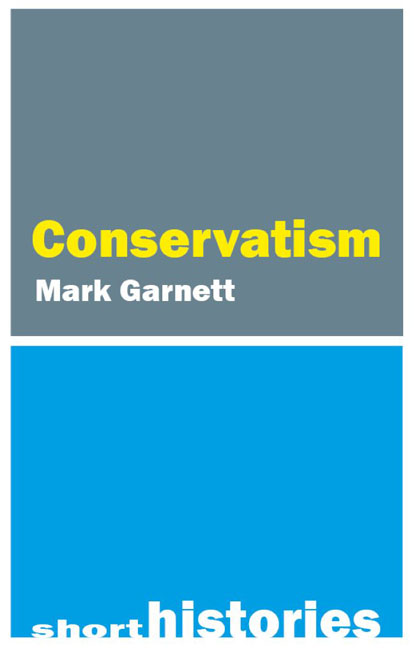Book contents
- Frontmatter
- Contents
- Preface
- 1 The contestable conservative tradition: Burke to Southey
- 2 The Conservative Party from Peel to Salisbury
- 3 “Converging streams”: British conservative thought from Southey to Cecil
- 4 The Conservative Party, 1902–45
- 5 “We must have an ideology”: conservatism since the First World War
- 6 The Conservative Party since 1945
- Conclusions: “Is conservatism dead?”
- Chronology of conservatism and the Conservative Party
- Further reading
- Bibliography
- Index
5 - “We must have an ideology”: conservatism since the First World War
Published online by Cambridge University Press: 20 January 2024
- Frontmatter
- Contents
- Preface
- 1 The contestable conservative tradition: Burke to Southey
- 2 The Conservative Party from Peel to Salisbury
- 3 “Converging streams”: British conservative thought from Southey to Cecil
- 4 The Conservative Party, 1902–45
- 5 “We must have an ideology”: conservatism since the First World War
- 6 The Conservative Party since 1945
- Conclusions: “Is conservatism dead?”
- Chronology of conservatism and the Conservative Party
- Further reading
- Bibliography
- Index
Summary
In the opening paragraph of his meticulous study of the Conservative Party between 1902 and 1940, John Ramsden noted that “The book does not delve into the philosophy of conservatism as such” (Ramsden 1978: ix). In justification of this approach, he related an anecdote concerning Stanley Baldwin, who led the party for around a third of the period in question. Asked about his intellectual influences by an enthusiastic young Conservative (Frank Pakenham, later, as Lord Longford, a controversial Labour peer), Baldwin paused for a moment before nominating Sir Henry Maine: “I never ceased to be grateful for all I learned from him”. Pakenham asked Baldwin what he considered to be Maine's most important insight. After a longer pause, Baldwin mentioned that Maine had established “once and for all” that human progress depended on the movement from status to contract: “He paused again and this time for quite a while, and suddenly a look of dawning horror, but at the same time of immense humanity and confederacy stole across his face. ‘Or was it’, he said leaning a little towards me, ‘or was it the other way round!’” (Ramsden 1978: ix–x).
The most likely explanation of Baldwin's behaviour is that he was teasing his visitor – an alumnus of Eton who had obtained a first-class degree in PPE from Oxford despite the distractions of the Bullingdon Club. Nobody who had ever heard of Sir Henry Maine could fail to regurgitate his most celebrated catchphrase: “from status to contract” tripped off the tongue as readily as “from Alpha to Omega”. Baldwin's pregnant pause (no doubt accompanied by a pull on his ever-present pipe) probably arose from appreciation of his own anti-intellectual intellectual joke, which conveyed a suggestion that he was wiser than Sir Henry Maine himself. Maybe Coleridge and Southey had been right, and the movement from status to contract had actually been a regressive step?
- Type
- Chapter
- Information
- Conservatism , pp. 101 - 124Publisher: Agenda PublishingPrint publication year: 2023

